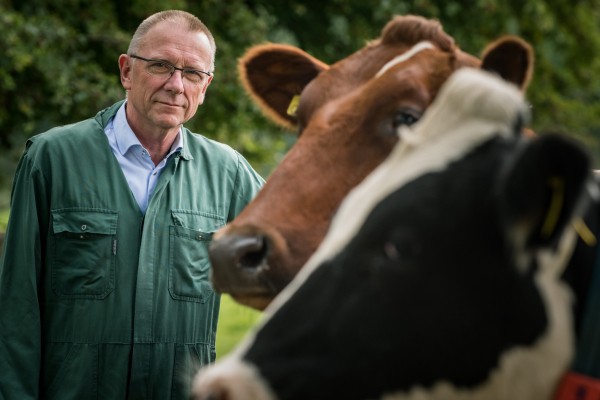Animal experiments made public
8 years agoThis year, Utrecht University and UMC Utrecht are working on the publication of all licenses issued for animal experiments, in the context of openness. Researchers responsible for research or education with laboratory animals are faced with this. This is also the case with Dr. Gerrit Hooijer, Associate Professor of Ruminant Health Care at the Department of Farm Animal Health Care (Faculty of Veterinary Medicine, Utrecht University).
What was your first reaction when you heard about the publication of the licenses?
I was not dismissive of it, but I saw some tricky issues. I use cattle and small ruminants as laboratory animals in the education of veterinary students and in scientific research. I have no problems making public the use of laboratory animals for education.
The scientific research is sometimes a bit more complicated. Take, for example, a study in which blood is taken from cows twice. This is also done a lot in regular business operations, in the context of monitoring animal health or making a diagnosis. If it is done for scientific research, it is an animal experiment according to the legal definition.
In addition, some information may be competition-sensitive, making full disclosure undesirable, especially if research is innovative.
The law allows you to obscure personal and competition-sensitive information. What have you anonymized?
Names and telephone numbers of employees have been crossed out in education. They don't have to be public. In the experimets, I also cut out details of what exactly we are examining in the blood samples. We prefer not to show that, but we show to draw blood and also show the purpose of the research. When anonymizing, someone from the legal department makes sure that you do not make too much illegible. I mainly tried to put myself in the reader's shoes. What kind of questions would he/she ask? You want to avoid anonymizing so much that you are no longer transparent.
In general, how do you feel about openness about animal experiments?
In principle, I think openness is very good. We say: come and have a look. For example, Het Klokhuis (an educational youth program on TV) has been filming in our department a few times. At such moments, we can easily show what is happening here in front of the camera. If it is difficult to explain what you are doing and why, you should ask yourself whether you are doing the right thing. What I find difficult is that descriptions of animal experiments without further explanation are sometimes difficult for outsiders to interpret. The non-technical summary, which is public anyway, does make that translation.


